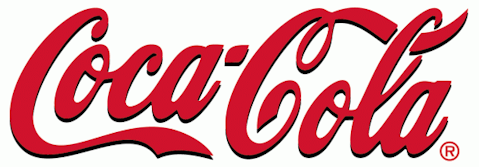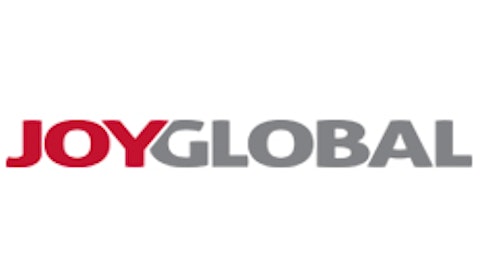The Coca-Cola Company (NYSE: KO) and PepsiCo, Inc. (NYSE: PEP) reported growing sales for 2012. Are these two stocks or any others in the non-alcoholic beverage industry attractively priced?
Coca-Cola Results
The Coca-Cola Company (NYSE:KO) reported that its fourth-quarter profit increased by 13% due to rising sales of non-carbonated drinks like Powerade in North America. During the quarter, the company’s sales volume in North America increased by 1%. In the region, the volume of the beverages declined by 2% while the volume of beverages advanced by 8% due to increased demand for the Powerade energy drink.

Overall 2012 results were solid. Net income increased to $1.87 billion or 41 cents per share during the quarter as compared to the $1.66 billion or 36 cents per share during the fourth quarter of the previous year. The company’s revenue increased by 3.8% to $11.46 billion, or increased by 5% on a comparable currency basis. The company’s global sales volume increased by 3%, the lowest quarterly increase during 2012.
Profit was 45 cents a share excluding restructuring costs and other similar items, which was higher against the 44 cents a share analyst estimate. The company’s CEO Muhtar Kent is focusing on increasing consumer demand for healthier beverages with offerings such as Honest Tea, Powerade and Simply Orange
The company now bottles 80% of the volume of drinks sold in the US; it plans to combine various distribution regions in its bottling unit to reduce costs and enhance its efficiency. Under this strategy, the company’s refreshments bottling unit would be reduced from seven to three territories such as East, Central and West. Kent focuses on restricting the distribution pattern across the US since the acquisition of Coca-Cola Enterprises Inc (NYSE:CCE)’ North American operations in 2010. He also said that they are focusing on improving in terms of how they serve their customers.
Kent focused on the fact that there will be an increase in the role of partners to acquire various parts and portions of the North American bottling operation, which the company now owns and operates. He also said that the current strategy of selling the bottling operations of the company would take place in another two to three years.
There could be further problems for Coca-Cola and other sugar drink sellers since there is criticism that sweetened drinks add to the United States obesity epidemic. In January 2013, the company commenced airing advertisements to highlight the significance of exercise and lower calorie intake in reducing obesity.
Pepsi Results
PepsiCo, Inc. (NYSE:PEP) reported an increase of 17% in its profit during the fourth-quarter due to higher prices. The company also plans to repurchase approximately $10 billion in stock as it prefers to return cash to its investors. According to Hugh Johnston, the CFO of Pepsi, the company does not require any large-scale acquisitions. The company also seeks permission from the US Food and Drug Administration for new sweeteners. It does not plan any restricting of its bottling business in North America before early 2014. According to Johnston, “We certainly wouldn’t want to make a change in the business structure while there are still opportunities to unlock value that might be better unlocked while PepsiCo still owns the business.”
Non-Alcoholic Beverage Growth Companies
Coca-Cola FEMSA, S.A.B. de C.V. (ADR) (NYSE:KOF) has finalized its acquisition of a 51% stake of Coca-Cola Bottlers Philippines from Coca-Cola for $688.5 million. The acquisition would strengthen the company’s position in the global beverage industry. The company has the necessary skills and operational capabilities to capture the opportunities available in its Philippine operation.
According to Beverage Digest, Monster Beverage Corp (NASDAQ:MNST) will label its beverages’ ingredients as per the U.S. federal guidelines for food products that have caffeine content. According to Rodney Sacks, the CEO of Monster Beverage, the labels on the beverage cans would provide details about nutrition facts instead of supplement facts to qualify as food items under U.S. Food and Drug Administration policies. US regulators are investigating the drinks’ safety after they were linked to deaths and hospitalizations. The agency is investigating whether the beverages could cause any harm to people when consumed in large quantities by young people or by those who have heart problems.
Valuation Considerations
Most beverage firms are not trading at attractive price multiples:
| Ticker | Company | P/E | P/S | P/FCF | D/E | EPS Growth Next 5 Years |
| DPS | Dr Pepper Snapple | 14.7 | 1.5 | NA | 1.19 | 6.9% |
| KO | Coca-Cola | 19.49 | 3.53 | 54.26 | 0.99 | 8.2% |
| KOF | Coca-Cola FEMSA | 33.06 | 2.89 | NA | 0.21 | 13.5% |
| MNST | Monster Beverage | 28.07 | 4.38 | 31.04 | NA | 19.0% |
| PEP | PepsiCo | 19.65 | 1.73 | 52.67 | 1.3 | 4.9% |
Possibly the only exception is Dr Pepper Snapple Group Inc. (NYSE:DPS). All the other stocks on this list trade at high price-to-earnings ratios. All but Dr Pepper Snapple and PepsiCo trade at high price-to-sales ratios as well.
That being said, Dr Pepper Snapple is not trading at attractive valuations, just valuations that are near the averages of the broader market. There is no compelling reason to jump in.
Conclusion
Do not add non-alcoholic beverage stocks at current prices. As a group they are pricey compared to the stock market as a whole, and the only name with reasonable valuations, Dr Pepper Snapple, is not compelling based on growth or valuation.
The article Are These Beverage Stocks Fizzling Buys? originally appeared on Fool.com and is written by Bill Edson.
Copyright © 1995 – 2013 The Motley Fool, LLC. All rights reserved. The Motley Fool has a disclosure policy.





